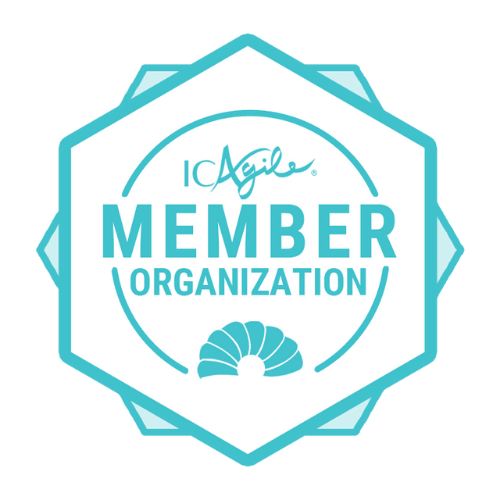Christophe Martinot
Leading with a Servant's Heart: Lessons from Ken Blanchard's "Serve to Be Great"
In "Serve to Be Great: Leadership Lessons from a Prison, a Monastery, and a Boardroom," Ken Blanchard explores servant leadership and how it can be applied in a variety of different environments. For anyone looking to become a more effective and impactful leader, this book provides valuable insights and practical tips.
There are three main themes in this book: serving others, setting a clear vision, and leading by example. To illustrate the importance of servant leadership and how it can be applied in different environments, Blanchard draws on examples from prisons, monasteries, and corporate boardrooms in each section.
Serving others lies at the heart of the book's teachings; this is what Blanchard calls servant leadership. It is a style of leadership that relies heavily on empathy, compassion and selflessness. Leaders that make it their goal to put others' needs before their own will be rewarded with an atmosphere of trust and collaboration in the workplace. This contributes to teamwork, a culture of respect and, ultimately, success.
Your team should have a clear vision and mission, according to Blanchard. A clear vision and mission can help to create a sense of purpose and direction for your team, as well as motivate and inspire others to work towards a shared goal. It is possible for leaders who are able to effectively communicate their vision and mission to create a sense of purpose that unites the team and drives the company forward.
Servant leadership necessitates leading by example - something that Blanchard emphasizes in his writing. Through exhibiting the values and behaviors desired for their team, leaders are able to shape a supportive work atmosphere rich in respect and trust. Moreover, these examples of leadership enable firms to foster excellent performance and a sense of accountability from personnel.
As well as these overarching themes, Blanchard provides practical tips and strategies for anyone interested in adopting servant leadership. In addition to building relationships with others, he recommends listening actively to their needs and concerns, and being open to feedback and suggestions. Further, he emphasizes the importance of continuous improvement and learning, and he encourages leaders to seek out new learning opportunities on a regular basis.
The importance of authenticity and honesty in leadership is also highlighted by Blanchard's book. Authentic leaders are able to build trust and credibility with their team, and they are able to create an environment of respect and trust that is positive for all. In addition to inspiring others to work towards a common goal, authentic and honest leaders can also create a culture of accountability and responsibility in their teams.
As part of her book, Blanchard stresses the importance of inclusive leadership and diversity of perspective. In order to create a positive work environment characterized by teamwork, collaboration, and mutual respect, leaders must embrace diversity and inclusion. As diverse perspectives and ideas can lead to new and innovative solutions, they can also create a culture of innovation and creativity.
In conclusion, "Serve to Be Great: Leadership Lessons from a Prison, a Monastery, and a Boardroom" is an invaluable resource for those seeking to hone their leadership skills. This book offers incisive perspectives on the theory of servant leadership and how it can be embodied in different contexts, as well as practical strategies and tips for integrating it into daily life. For experienced or novice leaders alike, "Serve to Be Great" provides keen insight and applicable advice for improving personal effectiveness and significance.
Putting others first and leading with a servant's heart are two of Blanchard's key takeaways from his book. In order to build trust and create a positive work environment characterized by teamwork, collaboration, and mutual respect, leaders must put the needs of others first. As a result, everyone can have a more fulfilling experience and experience greater success.
An important lesson from the book is that your team needs to have a clear vision and mission. In addition to helping to motivate and inspire others to work towards a common goal, a clear vision and mission can help to create a sense of purpose and direction for your team. In order to drive success, leaders need to effectively communicate their vision and mission so that their teams are united in their purpose.
Finally, Blanchard emphasizes the importance of being an authentic and honest leader and leading by example. When leaders lead by example, are honest, and are authentic, they are able to inspire others and create a culture of accountability and responsibility within their teams.
"Serve to Be Great: Leadership Lessons from a Prison, a Monastery, and a Boardroom" is an excellent resource for anyone seeking to become a more effective and impactful leader whether you are a seasoned leader or just starting out on your leadership journey.
To put servant leadership in practice may be challenging to implement sometimes. Management 3.0 provides great tools and practices to help you implementing servant leadership. Should you be interested in learning more about our Management 3.0 workshops.
There are three main themes in this book: serving others, setting a clear vision, and leading by example. To illustrate the importance of servant leadership and how it can be applied in different environments, Blanchard draws on examples from prisons, monasteries, and corporate boardrooms in each section.
Serving others lies at the heart of the book's teachings; this is what Blanchard calls servant leadership. It is a style of leadership that relies heavily on empathy, compassion and selflessness. Leaders that make it their goal to put others' needs before their own will be rewarded with an atmosphere of trust and collaboration in the workplace. This contributes to teamwork, a culture of respect and, ultimately, success.
Your team should have a clear vision and mission, according to Blanchard. A clear vision and mission can help to create a sense of purpose and direction for your team, as well as motivate and inspire others to work towards a shared goal. It is possible for leaders who are able to effectively communicate their vision and mission to create a sense of purpose that unites the team and drives the company forward.
Servant leadership necessitates leading by example - something that Blanchard emphasizes in his writing. Through exhibiting the values and behaviors desired for their team, leaders are able to shape a supportive work atmosphere rich in respect and trust. Moreover, these examples of leadership enable firms to foster excellent performance and a sense of accountability from personnel.
As well as these overarching themes, Blanchard provides practical tips and strategies for anyone interested in adopting servant leadership. In addition to building relationships with others, he recommends listening actively to their needs and concerns, and being open to feedback and suggestions. Further, he emphasizes the importance of continuous improvement and learning, and he encourages leaders to seek out new learning opportunities on a regular basis.
The importance of authenticity and honesty in leadership is also highlighted by Blanchard's book. Authentic leaders are able to build trust and credibility with their team, and they are able to create an environment of respect and trust that is positive for all. In addition to inspiring others to work towards a common goal, authentic and honest leaders can also create a culture of accountability and responsibility in their teams.
As part of her book, Blanchard stresses the importance of inclusive leadership and diversity of perspective. In order to create a positive work environment characterized by teamwork, collaboration, and mutual respect, leaders must embrace diversity and inclusion. As diverse perspectives and ideas can lead to new and innovative solutions, they can also create a culture of innovation and creativity.
In conclusion, "Serve to Be Great: Leadership Lessons from a Prison, a Monastery, and a Boardroom" is an invaluable resource for those seeking to hone their leadership skills. This book offers incisive perspectives on the theory of servant leadership and how it can be embodied in different contexts, as well as practical strategies and tips for integrating it into daily life. For experienced or novice leaders alike, "Serve to Be Great" provides keen insight and applicable advice for improving personal effectiveness and significance.
Putting others first and leading with a servant's heart are two of Blanchard's key takeaways from his book. In order to build trust and create a positive work environment characterized by teamwork, collaboration, and mutual respect, leaders must put the needs of others first. As a result, everyone can have a more fulfilling experience and experience greater success.
An important lesson from the book is that your team needs to have a clear vision and mission. In addition to helping to motivate and inspire others to work towards a common goal, a clear vision and mission can help to create a sense of purpose and direction for your team. In order to drive success, leaders need to effectively communicate their vision and mission so that their teams are united in their purpose.
Finally, Blanchard emphasizes the importance of being an authentic and honest leader and leading by example. When leaders lead by example, are honest, and are authentic, they are able to inspire others and create a culture of accountability and responsibility within their teams.
"Serve to Be Great: Leadership Lessons from a Prison, a Monastery, and a Boardroom" is an excellent resource for anyone seeking to become a more effective and impactful leader whether you are a seasoned leader or just starting out on your leadership journey.
To put servant leadership in practice may be challenging to implement sometimes. Management 3.0 provides great tools and practices to help you implementing servant leadership. Should you be interested in learning more about our Management 3.0 workshops.
Thank you!
AgileWoW4all is a brand of SeedingEnregy S.L.
At SeedingEnergy we want to unleash the potential of your team and reach new goals through facilitation, customized trainings and coaching.
Copyright SeedingEnergy© 2021
Write your awesome label here.
¿Estás preparado?
Sé el primero en aportar innovación en tu departamento de Marketing
Thank you!




